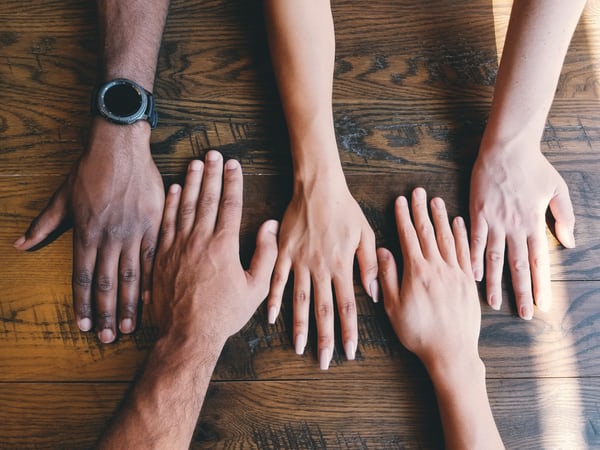Hard Truth
Author: Nancy Wade
As people of faith, walking together on the Christian path, we like to think that we are a good and thoughtful people. We like to think of ourselves as both loving and enlightened, fair in the way we view the world and fair in the way we treat other people. It is not an easy thing for us to admit that we sometimes fall short. There is no one among us who likes to admit their shortcomings or their failings.
When I first heard that our church was offering a 6-week Zoom class on the topic of white privilege, I hesitated to sign up. As one whose career involved diversity recruiting, I thought of myself as a person who was certainly aware that because my skin is white, I have privilege over people of color. But I decided to take the class and I will be forever grateful that I did so.
The UCC curriculum that we followed for the class was provocative. It made me uncomfortable a lot of the time. It made me look at hard truths in my life. Our small group of eight women dug deep; we were honest with each other as we tried to understand the dynamics of racism in our country. In sharing life stories with each other, we looked closely at our attitudes and belief systems. We stripped bare our assumptions and our world view. At times, the truth about our privilege as white women was hard to listen to. We admitted to ourselves and to each other that we are all part of the problem of systemic racism.
One metaphor that will stay with me was the image of a Monopoly game. One speaker on a video we watched talked about how white people play the first ten rounds, gaining access to property and generational wealth, and only then are black people allowed to enter the game. Obviously, no matter how hard they work or how strategically they play the game, they are never able to catch up. And the white people continue to play, oblivious to the plight of black people, as they work to increase their own wealth and status.
I learned about discrimination in housing, discrimination in access to GI Bill benefits after World War II, and discrimination in the quality of both health care and education, among other transgressions. I learned about the practice of “red-lining” black neighborhoods and about the lack of social support black people face on a regular basis.
In truth, I feel as if I have truly awakened for the first time in my life to the harsh realities of systemic racism and white privilege in our country.
I believe George Floyd’s death was a genuine tipping point. We must continue to do a deep dive into the topic of ingrained racism in the United States of America and work together to make substantive improvements that will benefit all people. In the upcoming weeks you will hear about the plans of First Congregational Church has to address systemic racism. I hope you will join me and others who are committed to this cause as we work together to discover the hard truths and to walk alongside our black brothers and sisters on a path toward true equality.

